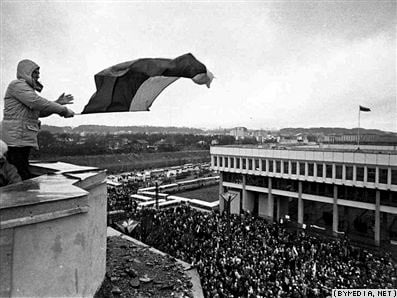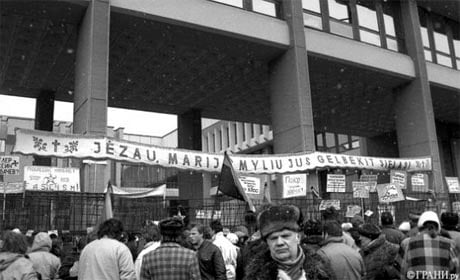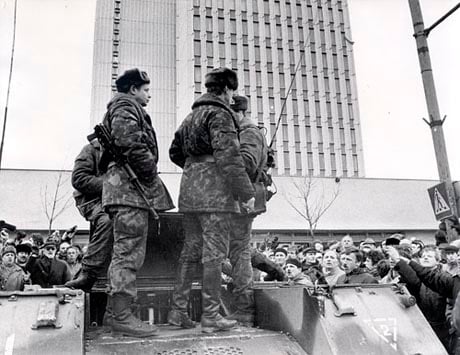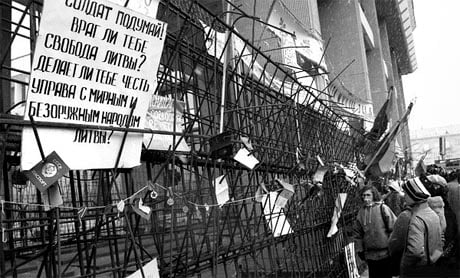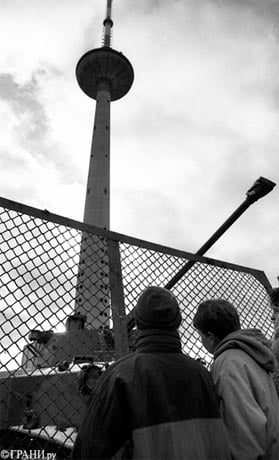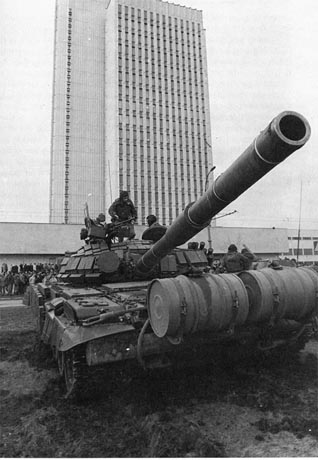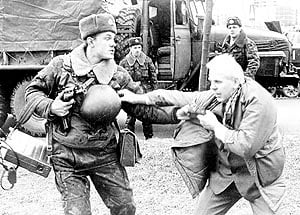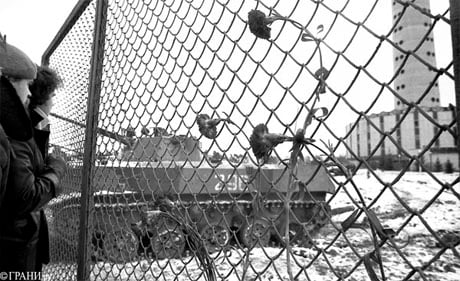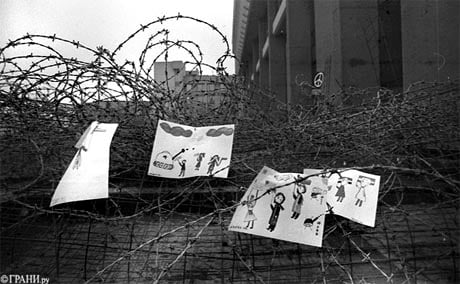Lithuania celebrates Freedom Defenders Day (Photo)
8- 13.01.2010, 10:34
Meanwhile, Belarusian government refuses to extradite to Lithuania the general charged with military crimes.
On January 13 Lithuania pays tribute to the memory of peaceful people who died in 1991 when Soviet troops tried to overthrow legitimate authority in Lithuania, after the Supreme Soviet of Lithuania announced the country’s independence.
14 persons were killed in Vilnius then, including a 18-year-old girl, and thousands were injured during storming of the TV tower and the Lithuanian TV and Radio office by Soviet army.
The soviet troops managed to seize those buildings then, but near the building of the Seimas, then the Supreme Counvil of Lithuania, tanks and troops were stopped by a many-thousands strong crowd of unarmed people, who were staying in the bitter frost day and night. Their only weapon was a song, that’s why these events were dubbed “singing revolution”, Radio Svaboda informs.
As charter97.org website informed, Belarus still refuses to extradite to Lithuania General Uladzimir Uskhopchyk, who is accused in the case of anti-state coup on January 13, 1991. Starting from 1992, representatives of the prosecutor’s office of Lithuania, regularly demanded Belarusian authorities to extradite Uskhopchyk. But instead of surrendering the suspect to the authorities of the country in which he is charged with commitment of numerous crimes, including grave ones, Alyaksandar Lukashenka appointed Uskhopchyk deputy defense minister in May 2004. On February 23, 2004 Uskhopchyk was awarded “For service to Motherland” order.
Last week Lithuanian Prosecutor-General’s Office received and answer from the Prosecutor-General’s Office of Belarus. It states that Lithuania won’t be granted help in the case of January 13. The Prosecutor-General’s Office of Belarus reiterated its position that actions of the suspects are estimated by it under the laws in force then, the laws of the Soviet Union, as an intention to defend the constitutional order of that state and its territorial integrity.
Prosecutor Algimantas Kliunka said that the negative answer from Belarus won’t change the legal treatment by Lithuania: “the actions committed in Lithuania in January 1991 against freedom defenders is a crime, and criminal responsibility for that will follow only in Lithuania, but all over the EU”.
Vygaudas Ušackas, Foreign Minister of Lithuania, said in this connection that “Alyaksandr Lukashenka’s promise to cooperate with Lithuania in investigation of the case of January 13 which is especially important for our nation, which he gave during his visit to Vilnius, has not been fulfilled.”
“The Foreign Ministry in cooperation with the Prosecutor-General’s Office will do its best for the criminal prosecution to be continued. We hope that Belarus will estimate justice not according to the laws of the totalitarian state which once existed, the state which has caused a lot of harm, sufferings and victims to Belarus’ citizens as well, but will be guided by principles of respect to human rights, democracy and good neighbourhood practices,” Vygaudas Ušackas said.
The former chairman of the Lithuanian Supreme Soviet Vytautas Landsbergis, once gave to the court audio recording of phone conversations with Uskhopchyk, when he threatened to use force against demonstrators. Vytautas Landsbergis many times said that “General Uskhopchyk was an active participant of January events, he was a commander of a Soviet garrison in Vilnius, and on his order tanks and APCs attacked armless people”.
In connection with refusal to hand over General Uskhopchyk to Lithuania, Landsbergis stated that “The Belarusian office of Prosecutor general makes a statement in a bad, incompetent and immoral way saying that the murder of armless people is an attempt to reinstate a constitutional order”.
The politician attracted attention to the fact that in October 1991 in Vilnius he and Stanislau Shushkevich, the chairman of the Supreme Soviet of Belarus, signed a declaration on neighbourly relations principles, and in its preamble they rubberstamped that the principles of relations between them are based upon the Act of Independence of Lithuania signed in March 11, 1990.
